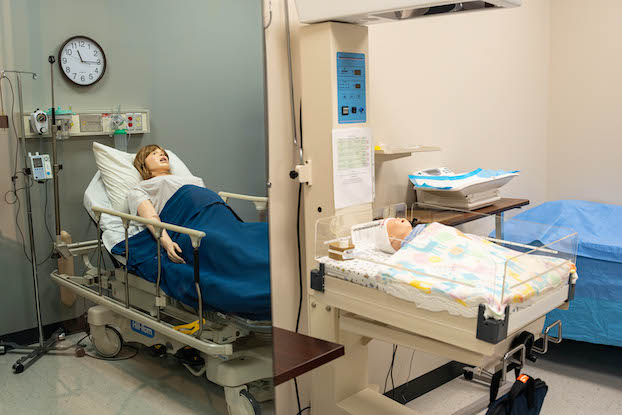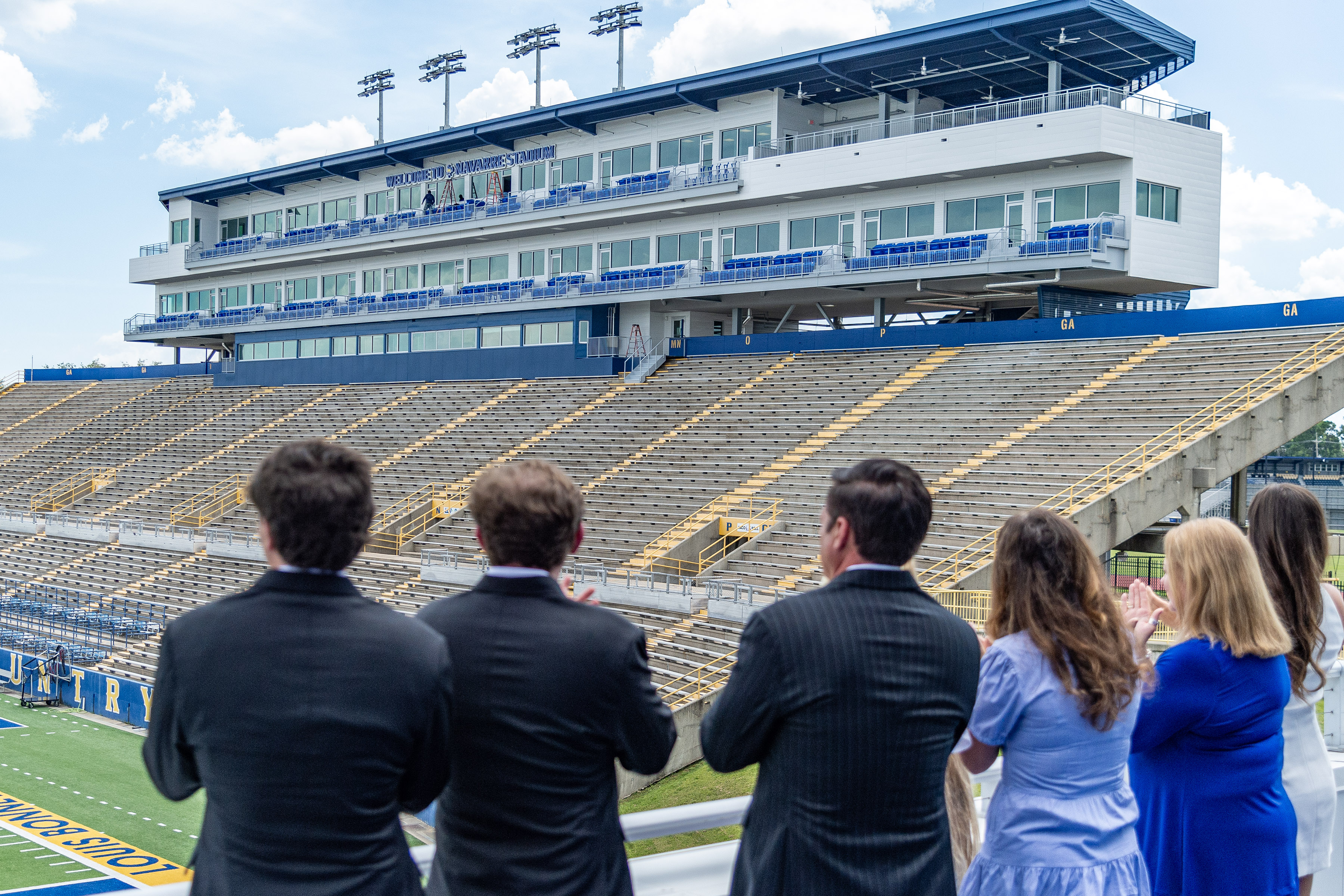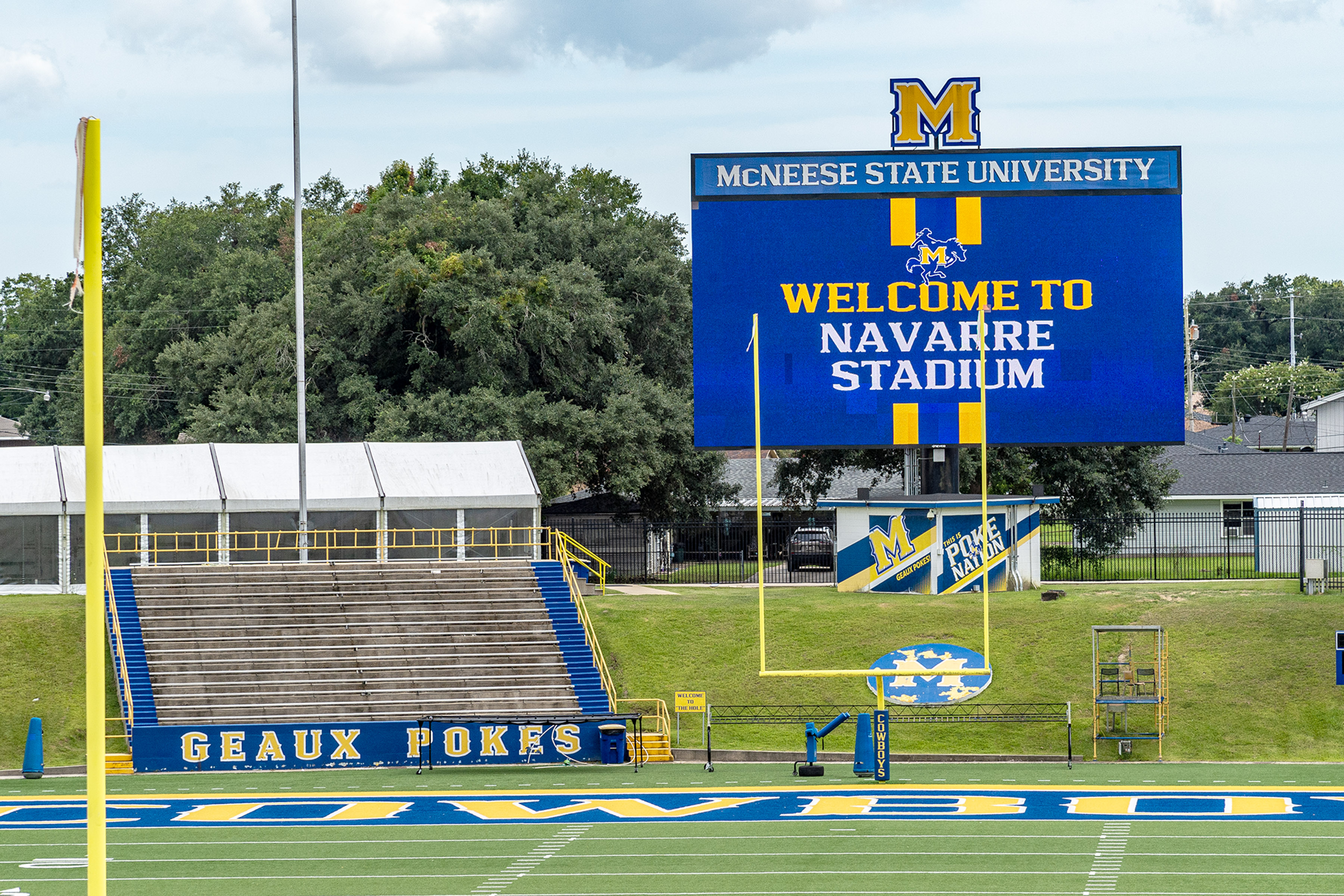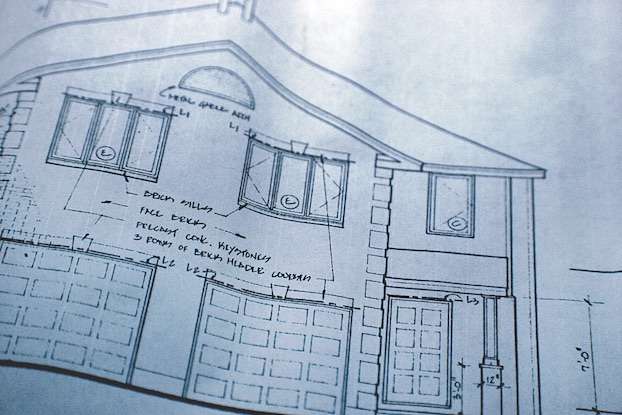Sowela nursing students building experience in expanded simulation lab
Published 2:20 pm Tuesday, June 24, 2025

- Sowela’s high-fidelity simulation labs provide students with practical experience in a safe environment using state-of-the-art mannequins that simulate bodily functions. (Special to the American Press)
In the fall, the nursing students at Sowela Technical Community College will have full access to expanded simulation lab space.
Sowela’s high-fidelity simulation labs, located in the H.C. Drew Nursing and Allied Health Building, provide students with practical experience in a safe environment using state-of-the-art mannequins that simulate bodily functions.
Instructors sit outside the labs to conduct the simulations, while the students are dropped into realistic scenarios. These scenarios could include moderating a mannequin’s temperature or conducting an emergency C-section on a mannequin.
Trending
The patients are portrayed by the instructors, who talk into speakers to prompt the students. Video capture systems were installed in the labs to record the sessions, which allows instructors to sit with their students to debrief and analyze the simulation results, said Kristine Stout, Sowela School of Nursing and Allied Health Dean.
Students participate in pediatric, OB, adult and geriatric simulations to prepare for their careers. Some scenarios are simple, but some are complex and continue into the next day, increasing in severity.
Nursing (RN) and practical nursing program (LPN) students previously had access to three high-fidelity labs, but the recent expansion has increased the number to five. The 2,015 square feet of lab space has allowed instructors to curate specialized spaces.
The two new labs are the pediatrics and labor and delivery simulation labs, while the other three house three adult mannequins for other medical scenarios.
The project was funded by a $503,000 Rapid Response Grant from the Louisiana Technical and Community College System. The college applied for the grant in 2023 to prepare for an increase in students. Last year, Sowela doubled the number of RN cohorts from two to four, which opened enrollment for the spring semester as well as the fall semester.
Stout said they needed more lab space with the influx of new enrollment and to support the LPN students, who also participate in high-fidelity lab simulations.
Trending
In the meantime, classes and students had to adapt to more students by taking turns with the labs and classroom spaces, with instructors taking time out of their day to switch out mannequins to align with upcoming simulations.
“It was a lot of back and forth, back and forth.”
The grant has not only allowed the department to set up permanent labs for various, simultaneous scenarios, but it has also helped fund a new faculty member and a new child mannequin to expand simulation capabilities.
The new lab suite also has a surgical scrub sink, furthering the immersive experience of the simulations.
Students begin participating in simulations during their first semester. They practice clinical skills and apply their classroom knowledge to real-world scenarios. But they also develop soft skills that are necessary for students to succeed in the Allied Health sector, including task delegation, time management, critical thinking and communication.
If students are going to make a mistake, the Sowela instructors want them to make it in the simulation lab, Stout said.
“Simulation’s a safe place for students because they can’t harm anybody in here. They’re not real,” she explained. “If they’re going to make a mistake, we want them to make it in here before they ever get into the clinical setting. It’s a high-pressure area without the faculty in there, and it’s a realistic experience. They’re having to think like nurses, but they also have their team with them.”
The lessons students learn are not just derived from major missteps, but also small routine mistakes — like forgetting to verify the patient’s identity or sanitize their hands.
Experiencing every aspect of the job, from exhibiting patience with difficult patients to life-threatening situations, helps students build the instincts needed to succeed. For a well-rounded experience, the multidisciplinary simulations will have four to five roles, such as an RN, LPN, respiratory specialist or a member of the patient’s family.
The chain of learning extends past the students’ peers. Sowela partners with Louisiana State University to include their residents in the simulations. This familiarizes the students with the working relationships between RNs and doctors, and grants residents an opportunity to pass on their knowledge.
The labs also support students from other Sowela campuses.
The scope of the simulations is constantly expanding, she noted. They hope to include other programs on campus for large interdisciplinary simulations in the future.
Registration for the fall semester is open. Those interested in applying can visit www.sowela.edu/apply. Scholarship and financial aid are available for qualifying students.





